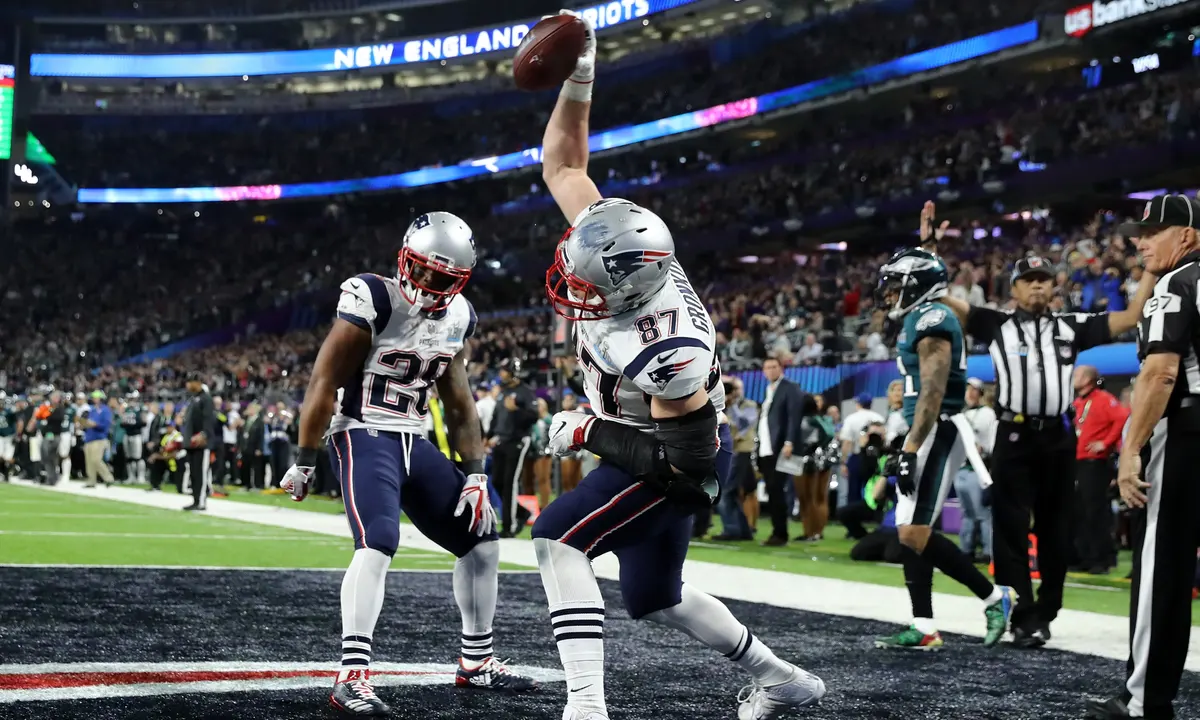Gambling as a whole has been somewhat of a controversial topic in the USA. Until not too long ago, most punters across the United States had only offshore sportsbooks to choose from, as the practice of wagering on sports games was not legal in the vast majority of states in the country. Thankfully, the situation has changed for the better in recent years. There are still challenges ahead, but things seem promising for now, and the American sports betting industry is practically thriving.
History of Sports Betting in the USA

Source: theguardian.com
For decades, sports betting aficionados who resided in the US were unable to legally partake in wagering on their favourite sports unless they happened to live in one of the four states where it was permitted. The Professional and Amateur Sports Protection Act of 1992 was the legislation responsible for this.
The law was controversial, and the early and mid 2010s saw multiple attempts by the state of New Jersey to legalise sports betting. Unfortunately, New Jersey’s efforts proved to be unsuccessful time and time again. The major leagues in the country were strongly opposed to the notion of legalised betting at the time, as they saw gambling as something that could corrupt the integrity of US sports.
A slew of sports betting scandals, many of which happened after the 1992 act, did not help the situation. In fact, just two years later, Dennis Lundy of the Northwestern Wildcats fumbled the ball on purpose during a game. He did this in order to win a bet he had placed against his own team.
Another instance of point-shaving occurred in the mid-2000s, although it was not until much later that all details surrounding this event came to light. Quinton Broussard, a University of Toledo player, pleaded guilty to fumbling and involvement in a match-fixing scheme. A major scandal in 2007 involving then referee Tim Donaghy, who had fixed games on multiple occasions in order to secure lucrative betting wins, was another nail in the legal coffin sports betting was trapped in at the time.
These are far from the only instances of sports games in the USA being tarnished by gambling, which is why public opinions on sports betting ranged from mixed to predominantly negative. As mentioned in superbettingsites.com, this type of issue is one of the core problems that explains why the NHL and the NBA, among other major leagues, were strongly against the legalisation of sports betting.
This all changed in 2018. Finally, New Jersey was victorious, and the Supreme Court ruled that PASPA would be struck down. Since then, individual states have been free to treat regulations concerning wagering on sports as they see fit.
The Current Situation

Source: techradar.com
The years following the declaration of PASPA as unconstitutional have brought about a radical change in the sports betting scene for US bettors. No longer are offshore bookies their only option. Instead, many bookmakers are now available legally within the country, and this includes US-based sportsbooks. Media coverage surrounding bets has also surged in popularity. The major US leagues’ past disdain towards betting seems to be gone, as indicated by how enthusiastically they have taken to promoting wagering on sports.
At the time of writing, around 80% of states have embraced sports betting one way or another. The past several years alone have proven to be productive, as several additional states have legalised sports betting within their respective borders. This includes Arizona in 2024 and West Virginia in 2024, along with New York, which legalised mobile betting in the same year.
What is and is not allowed varies from state to state. In New York, for instance, both in-person wagering and remote betting on sports are no longer outlawed. In states like Delaware, however, you can wager at land-based bookies, but the same cannot be said about betting on the web. Meanwhile, Tennessee has taken the opposite approach, and remote gamblers can partake in sports betting with no issues, while in-person wagering is off limits. Aspiring punters in Texas and Florida are, sadly, unable to wager legally at all at the time of writing. Other legislation differences include the legal age for bettors. In the vast majority of states, you need to be 21 or older to partake in betting, but there are also places such as Washington D.C., where being 18 is enough. What all of this means is that when looking to wager on games, US punters need to make sure that they are completely aware of what they are permitted to do.
The Future

Source: unsplash.com
There are currently around two dozen states that have yet to legalise wagering on sports. The number of such states is likely to dwindle slowly but steadily in the near future, and we can expect that the betting landscape will change for the better. Punters can even place bets on which states they believe will join the bandwagon.
Nonetheless, there are potential challenges ahead that also need to be put into consideration when it comes to the sports betting regulation in US. One such aspect that some individuals see as a problem is the advertisements that surround wagering on sports.
The aggressive promotion of gambling has been one of the major contributors to the boom of the US sports betting industry as a whole, but there are concerns that betting commercials are taking up too much screen time during breaks between games. Certain in-stadium ads, as well as ones on billboards and on the internet, are also seen as problematic and excessive. So much so, in fact, that it is believed the US might need to resort to creating additional regulations, similar to the measures currently being taken in the UK and the EU.
There are also states the likes of Utah that have shown no indication that plans to legalise betting are being considered. Elsewhere, attempts to make wagering legal have been plagued with complications. Either way, there is still room for improvement, and hopefully the next few years will spell good things for bettors living in some of the states that have yet to properly regulate gambling on sports.
